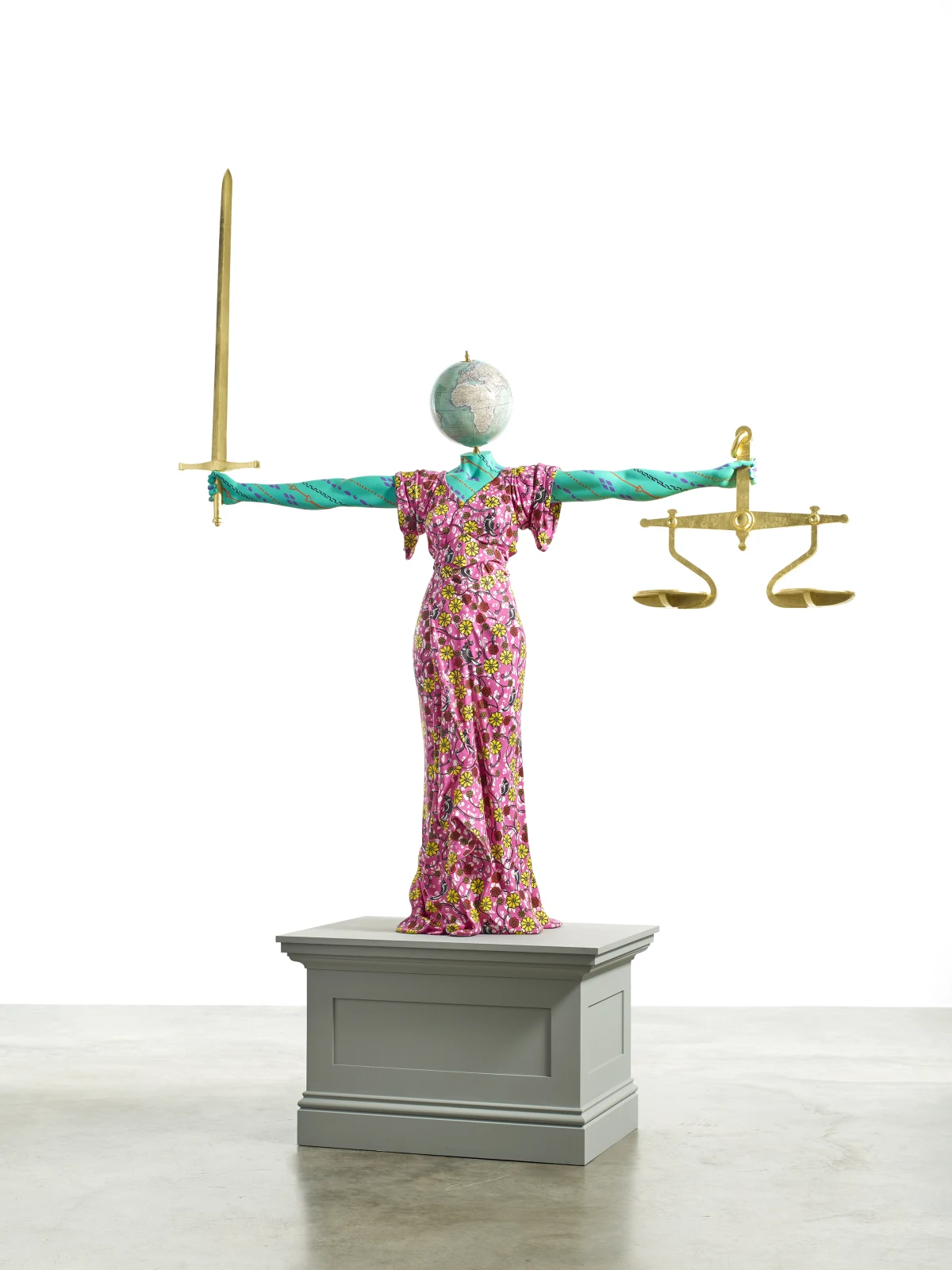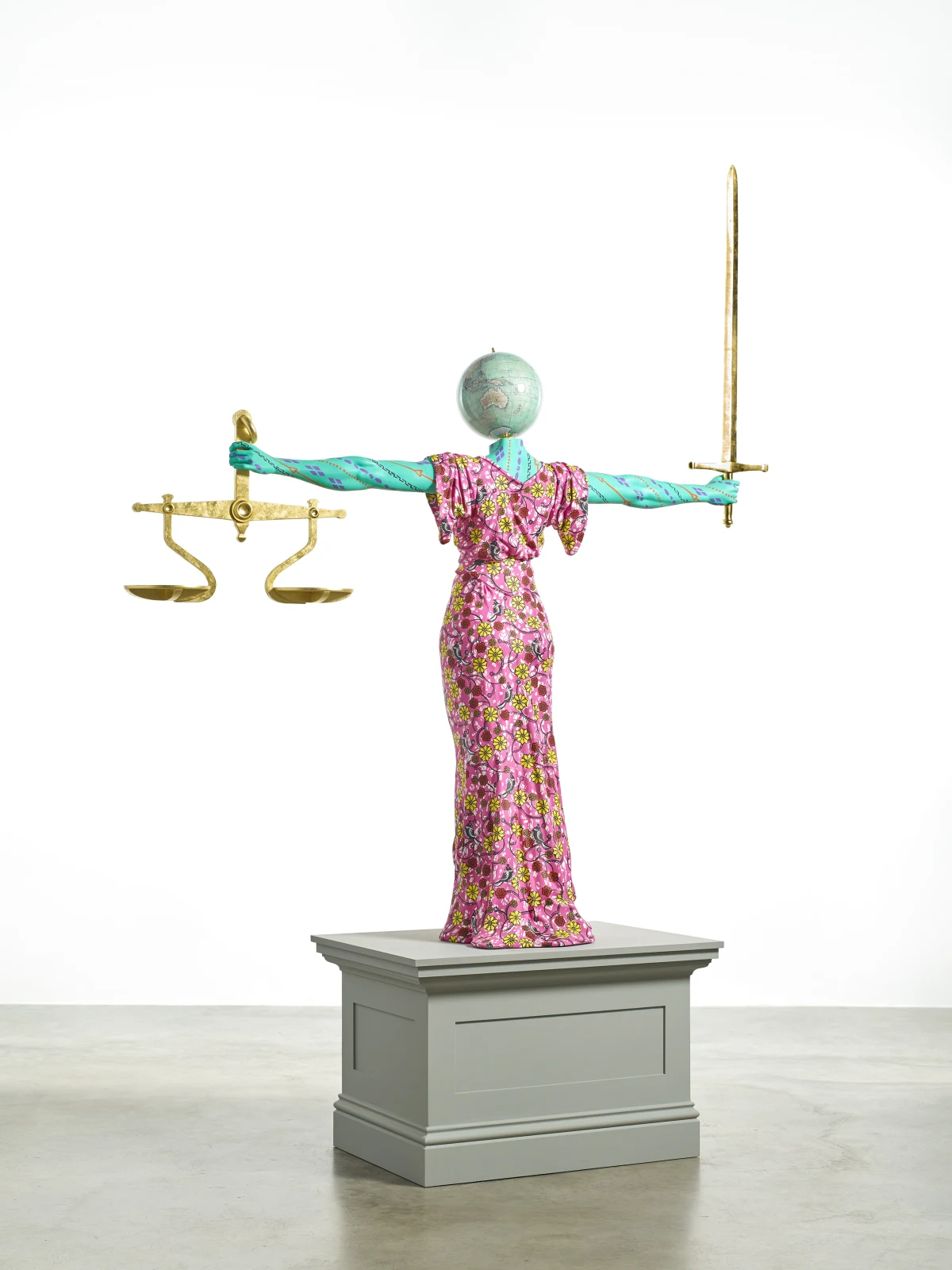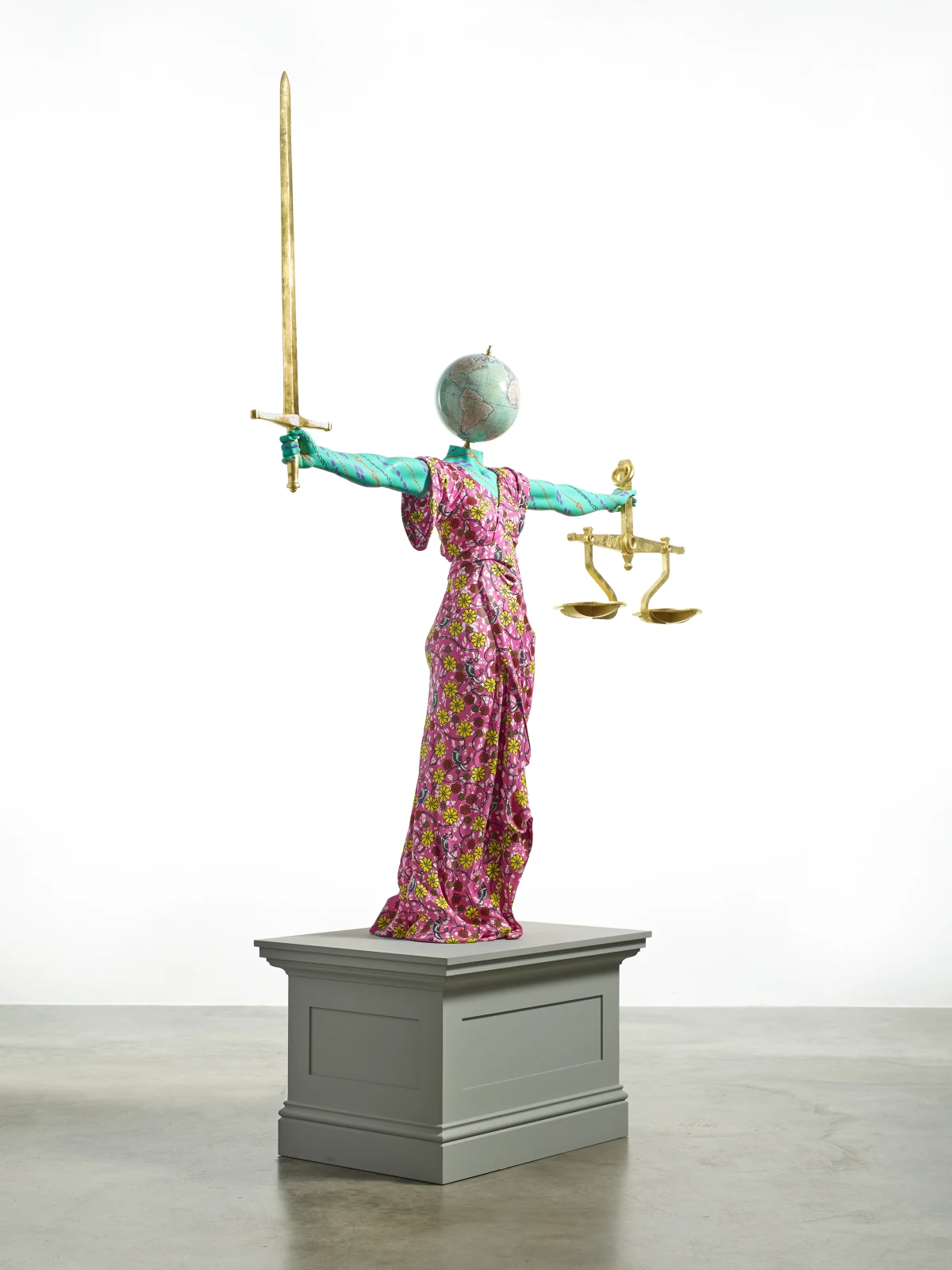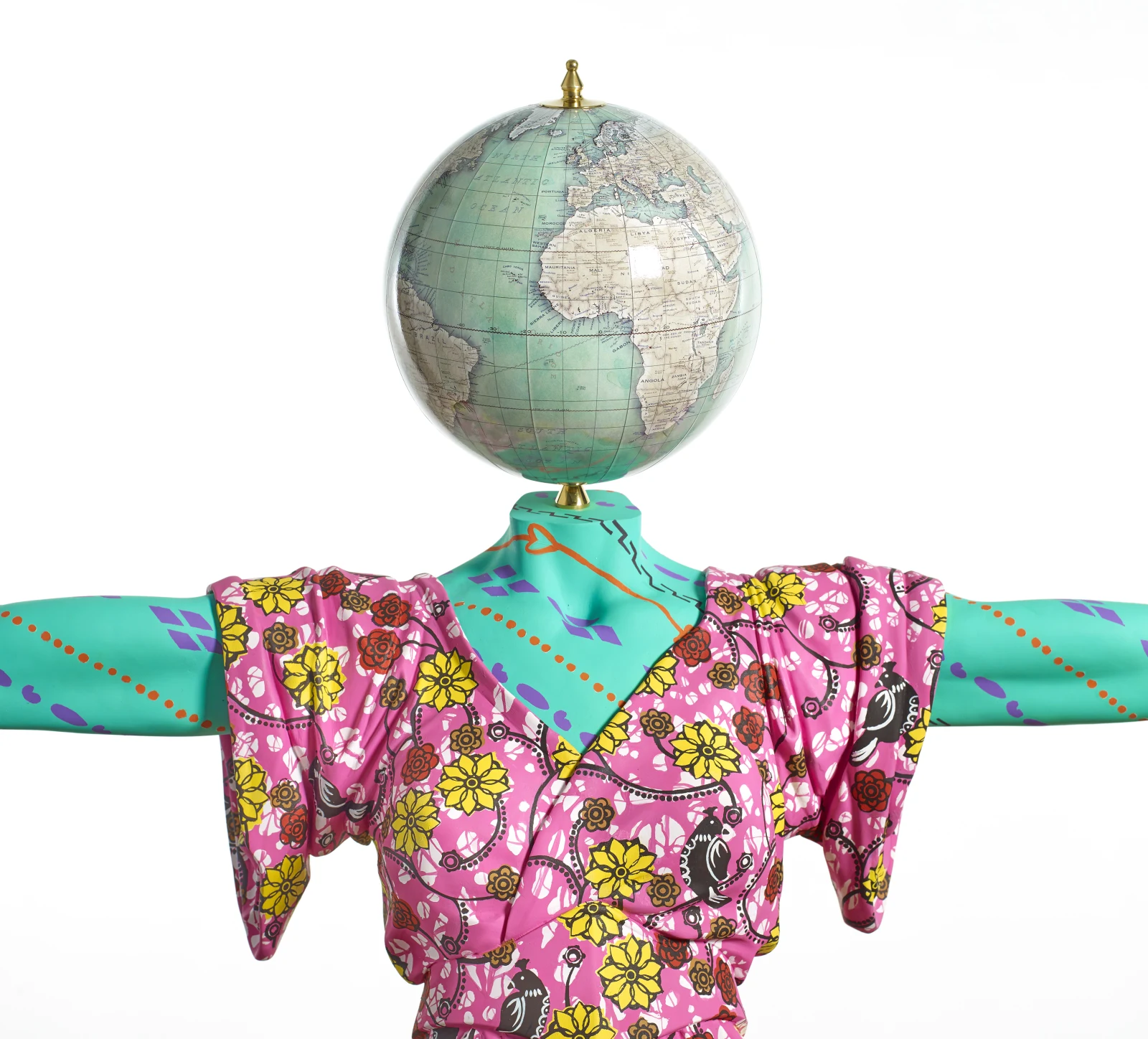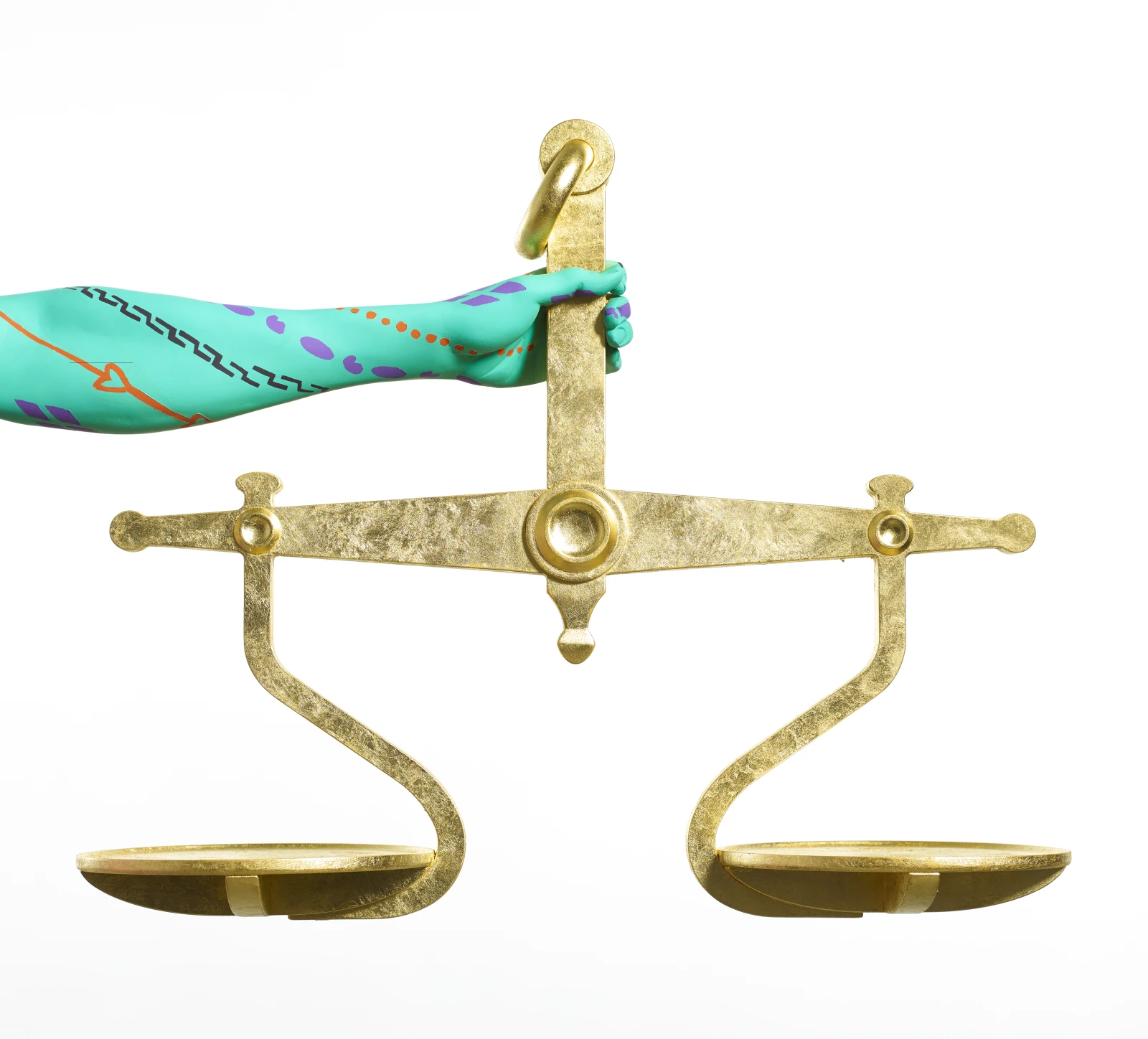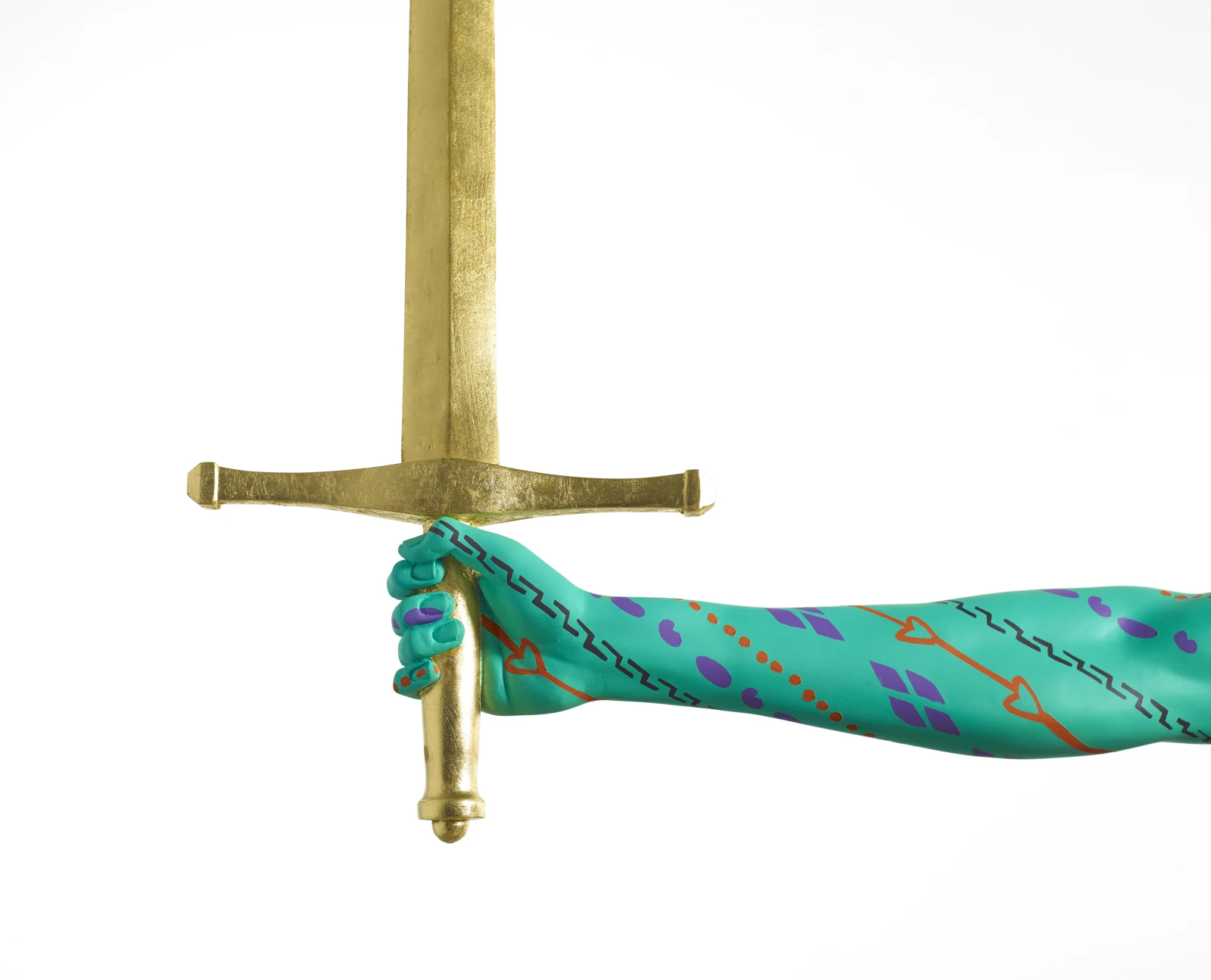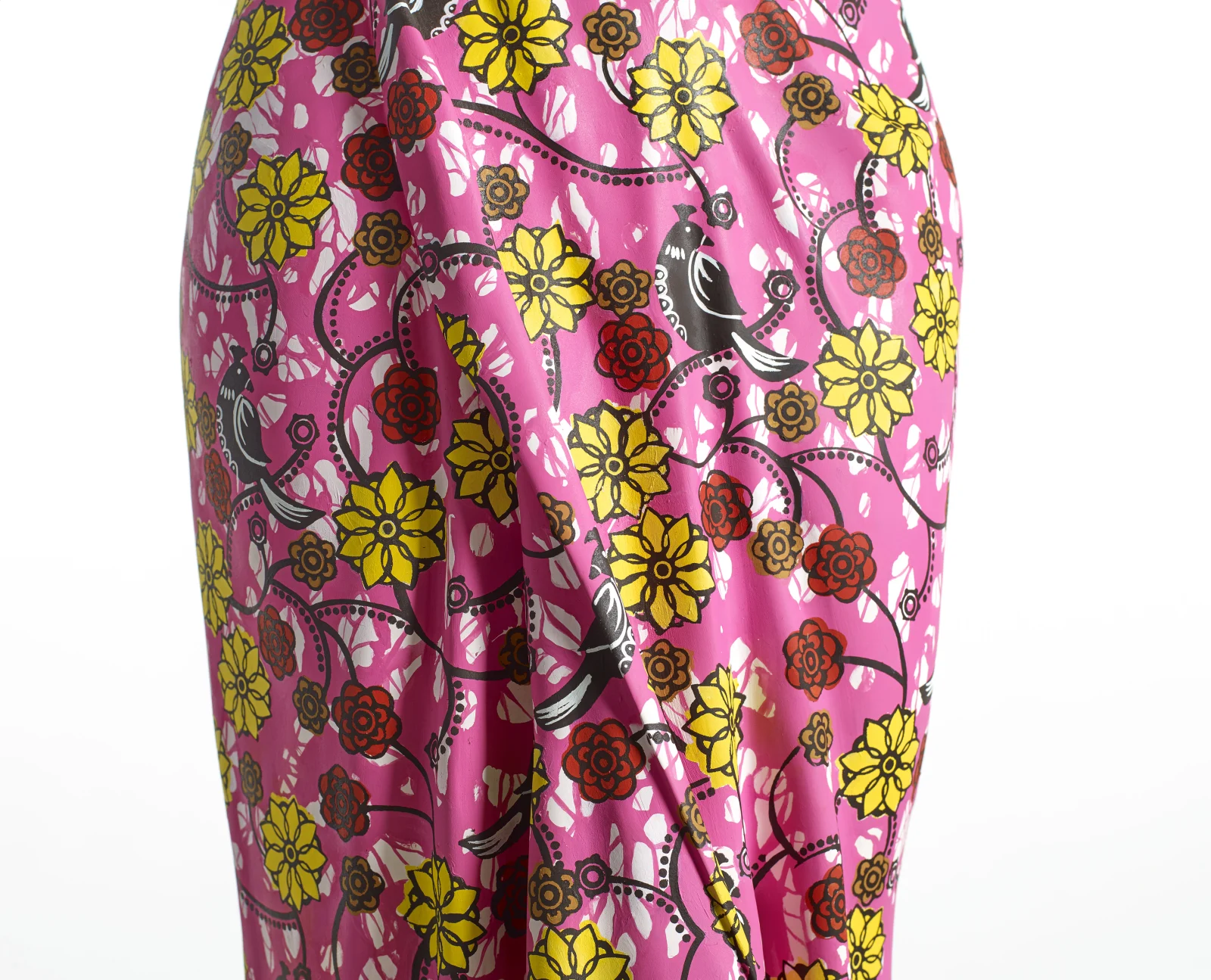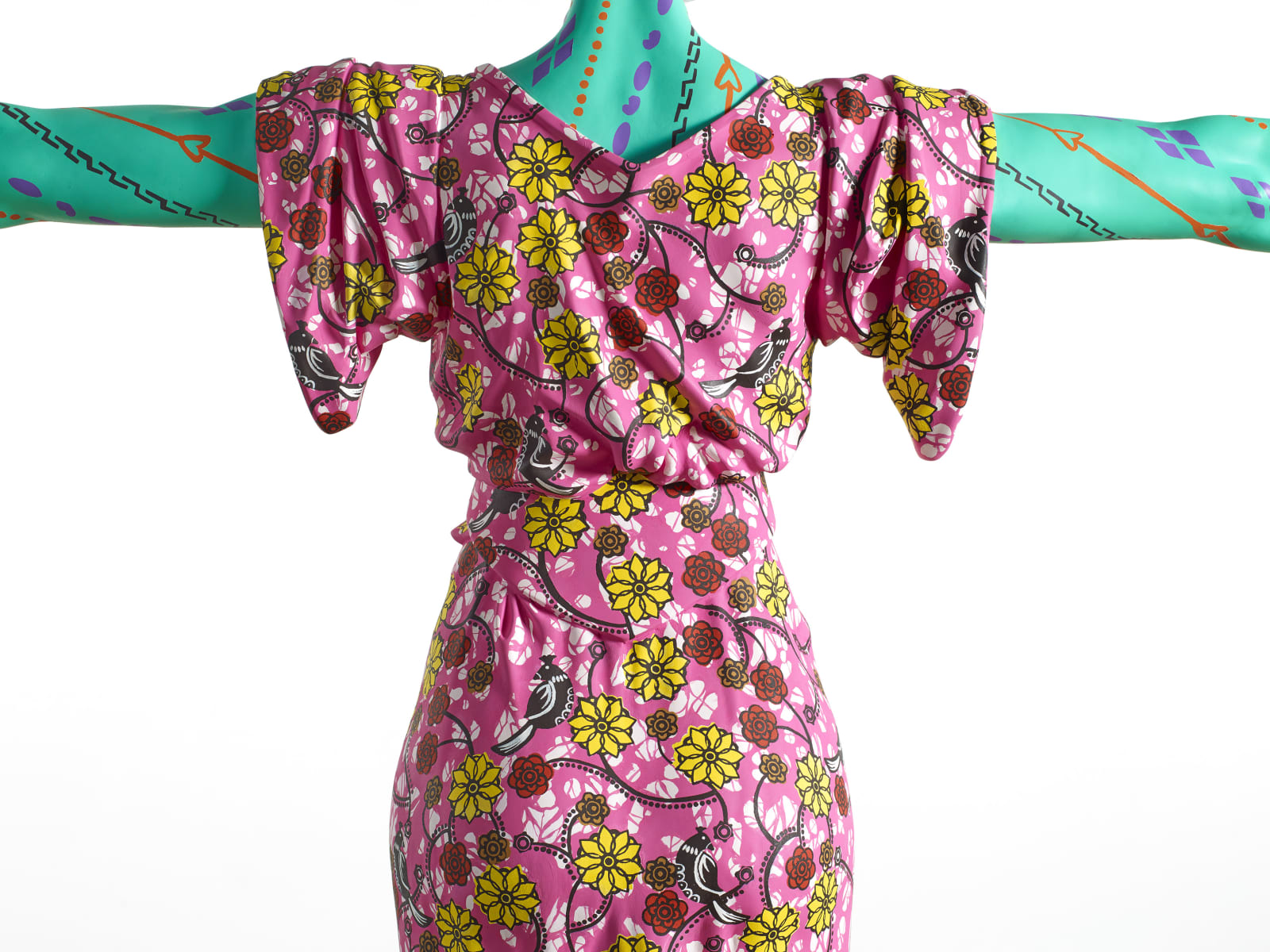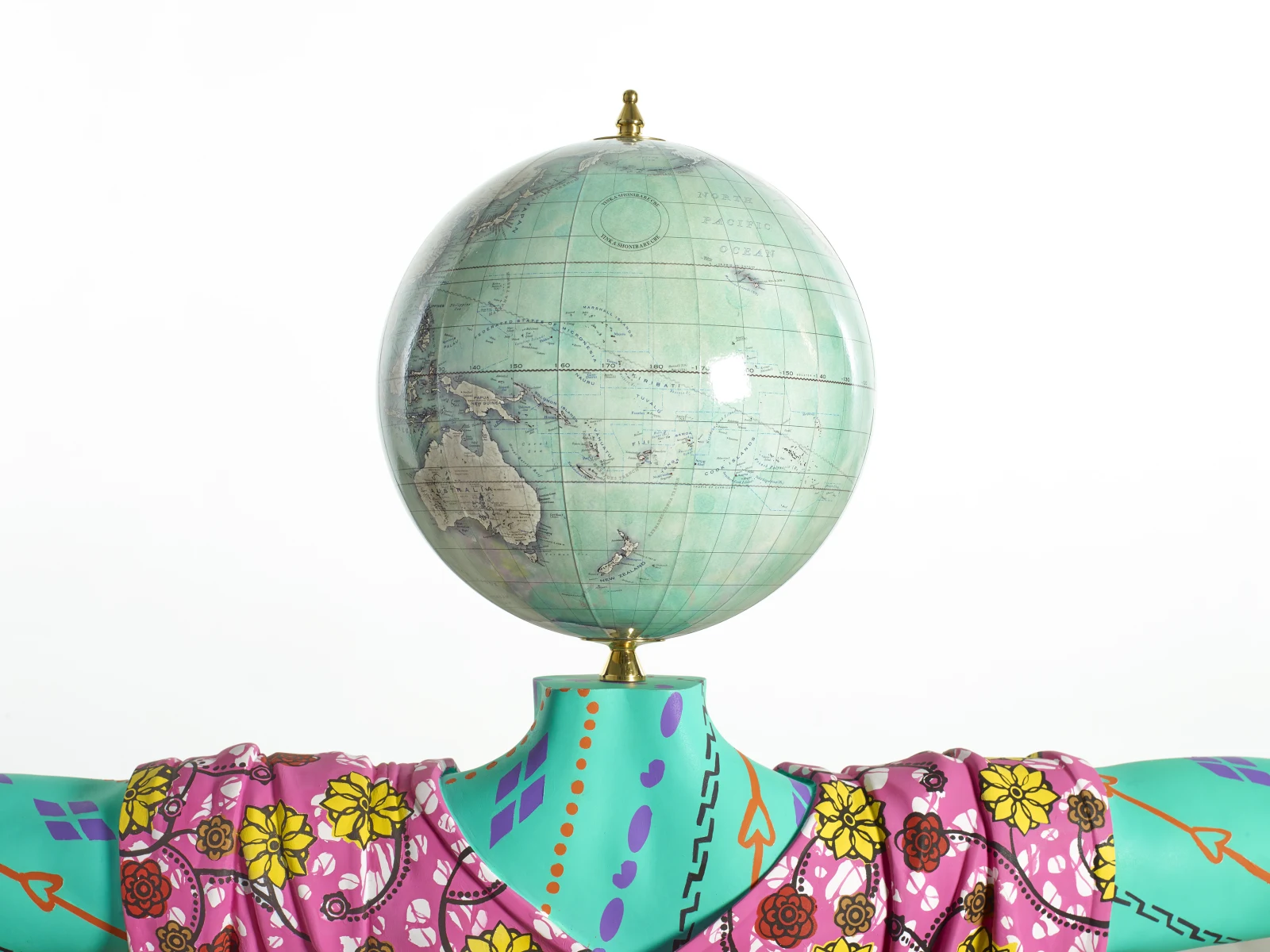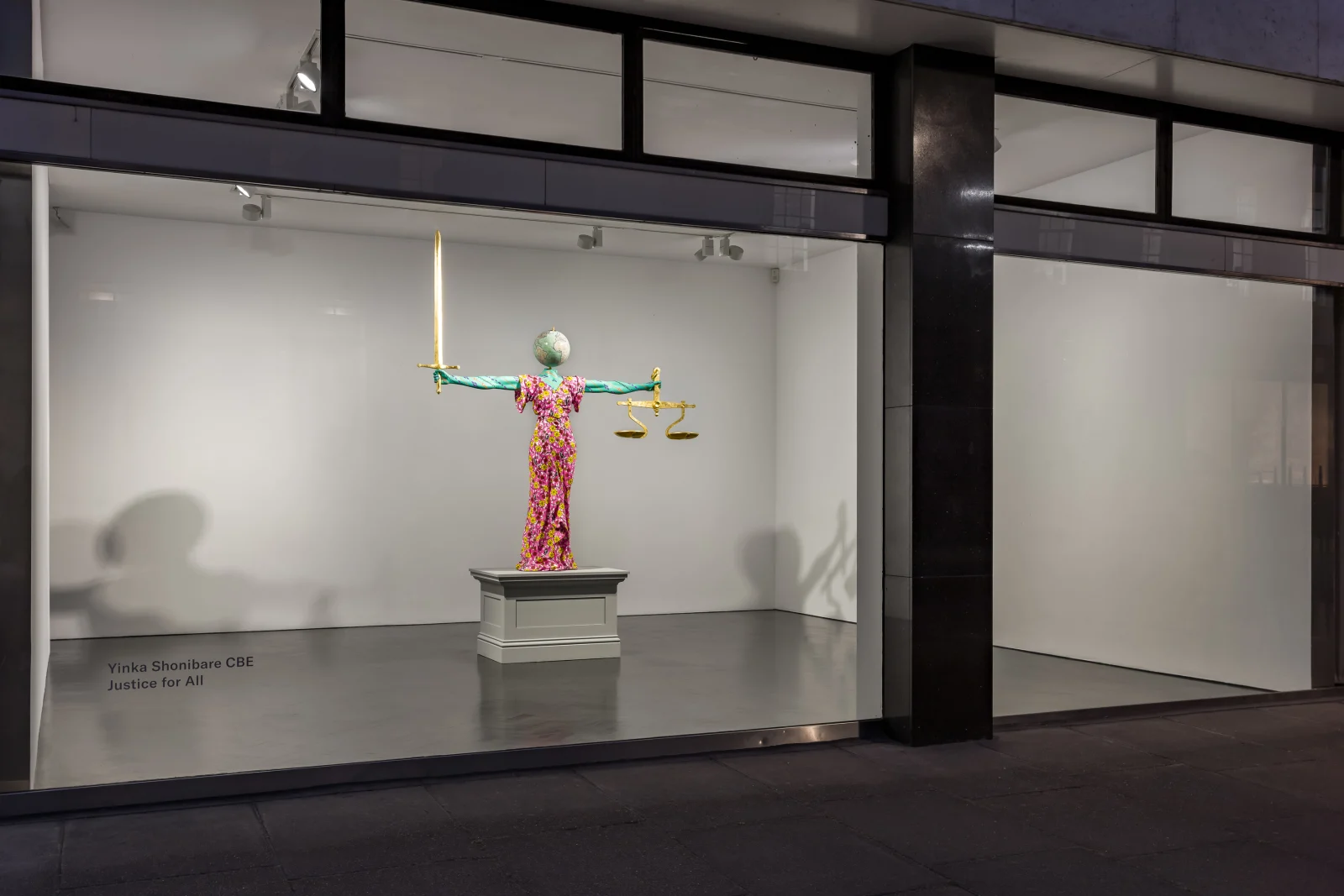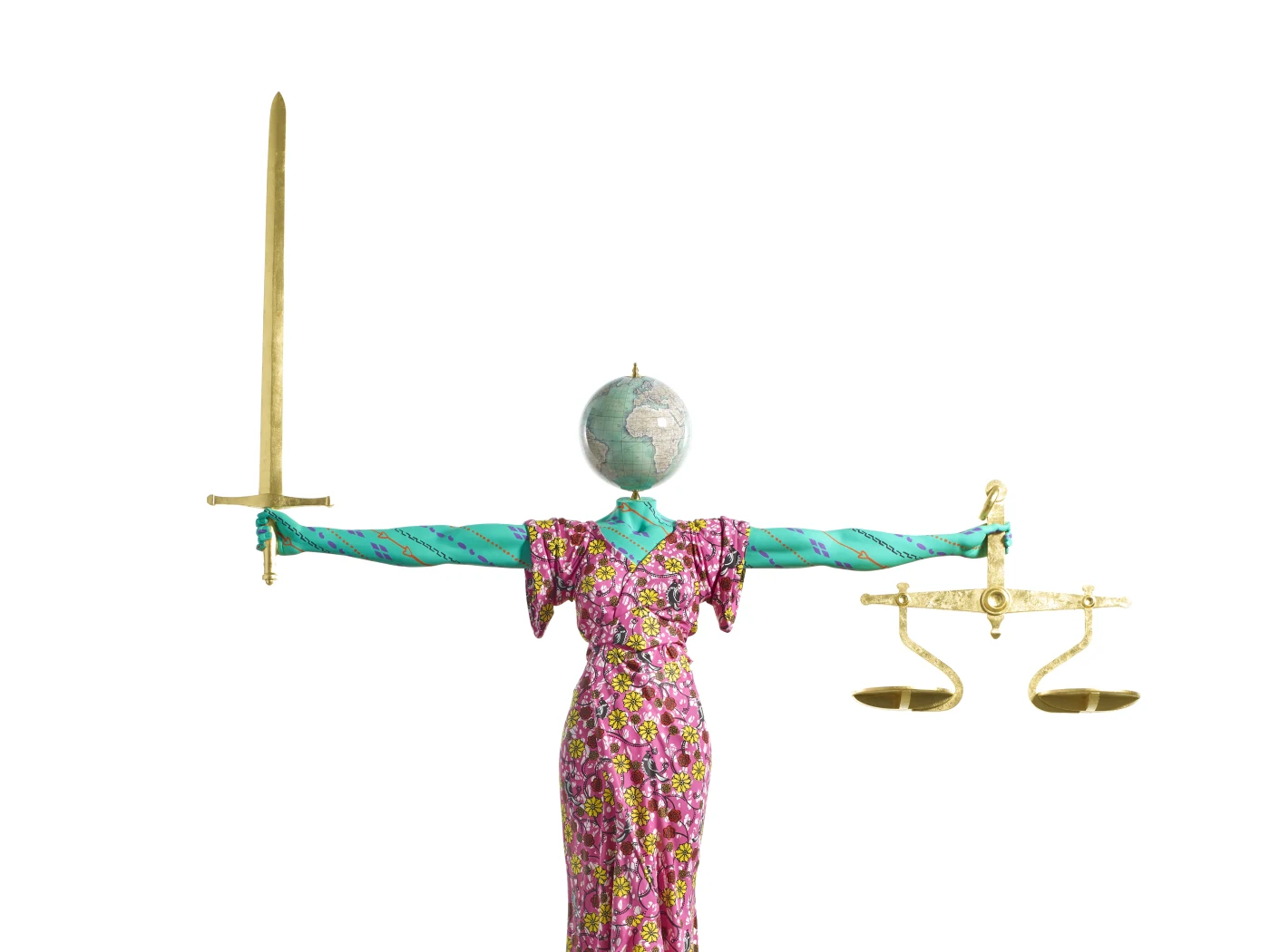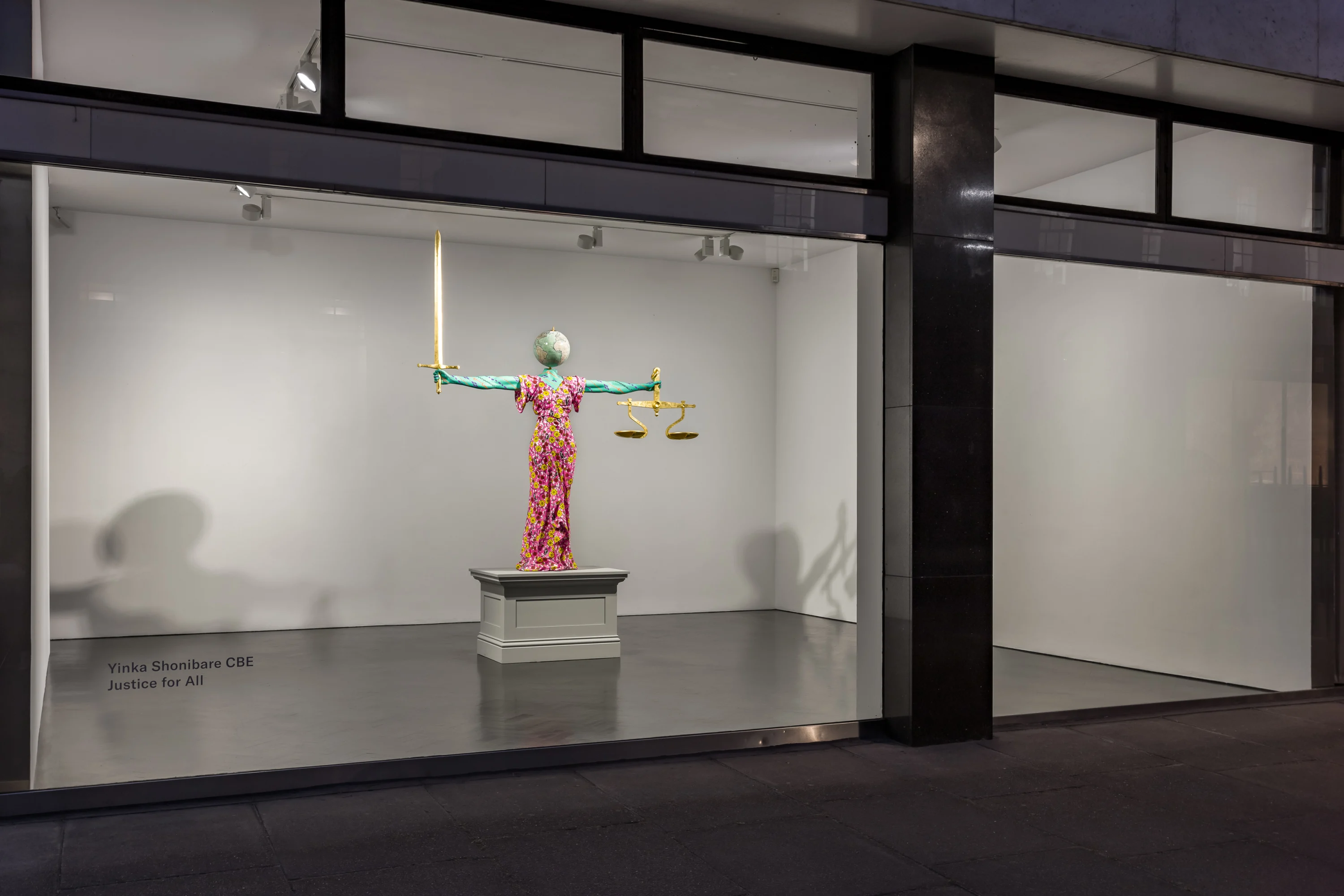
Yinka Shonibare CBE: Justice for All
Overview
"I wanted to think about Justice, especially in the light of George Floyd’s tragic death."
In light of the events of the past month and the Black Lives Matter movement, Stephen Friedman Gallery has been amplifying its artists' voices in solidarity with the cause. To mark the reopening of the gallery, a monumental work by acclaimed British-Nigerian artist Yinka Shonibare CBE is presented for the first time in the UK. The sculpture is installed in the gallery’s Viewing Room, making ‘Justice for All’ visible from the street and giving the work the public focus it deserves. Lights remain on during the night to make the sculpture available to the public 24/7.
Shonibare explains, “I wanted to think about Justice, especially in the light of George Floyd’s tragic death. This particular work was exhibited at Singapore’s Old Parliament House earlier this year. Justice has to be equally applied. People of African origin do not seem to have fair justice. Those injustices have always been there and things have to change. Some of these issues I've explored in my work have been going on for thirty years and I’m sad to think that those things are still going on."
‘Justice for All’ re-configures British sculptor F.W. Pomeroy’s Lady Justice (1905-1906), which stands upon the dome of London’s imposing Central Criminal Court (otherwise known as The Old Bailey). Instead of her habitual golden garb, Shonibare’s Lady Justice is depicted wearing a brightly patterned, ankle-length garment, apparently fashioned from ‘African’ batik. With both hands outstretched, Lady Justice wields a sword in her right hand and balances the scales of justice in her left. In place of a head, she sports a hand-painted globe, featuring a map of the world. Shonibare’s oeuvre investigates notions of imperialist authority and power. Seducing us with its colour and beauty, Shonibare re-interprets Lady Justice for an interior setting, whilst retaining the dramatic impact of the iconic public sculpture.
In light of the events of the past month and the Black Lives Matter movement, Stephen Friedman Gallery has been amplifying its artists' voices in solidarity with the cause. To mark the reopening of the gallery, a monumental work by acclaimed British-Nigerian artist Yinka Shonibare CBE is presented for the first time in the UK. The sculpture is installed in the gallery’s Viewing Room, making ‘Justice for All’ visible from the street and giving the work the public focus it deserves. Lights remain on during the night to make the sculpture available to the public 24/7.
Shonibare explains, “I wanted to think about Justice, especially in the light of George Floyd’s tragic death. This particular work was exhibited at Singapore’s Old Parliament House earlier this year. Justice has to be equally applied. People of African origin do not seem to have fair justice. Those injustices have always been there and things have to change. Some of these issues I've explored in my work have been going on for thirty years and I’m sad to think that those things are still going on."
‘Justice for All’ re-configures British sculptor F.W. Pomeroy’s Lady Justice (1905-1906), which stands upon the dome of London’s imposing Central Criminal Court (otherwise known as The Old Bailey). Instead of her habitual golden garb, Shonibare’s Lady Justice is depicted wearing a brightly patterned, ankle-length garment, apparently fashioned from ‘African’ batik. With both hands outstretched, Lady Justice wields a sword in her right hand and balances the scales of justice in her left. In place of a head, she sports a hand-painted globe, featuring a map of the world. Shonibare’s oeuvre investigates notions of imperialist authority and power. Seducing us with its colour and beauty, Shonibare re-interprets Lady Justice for an interior setting, whilst retaining the dramatic impact of the iconic public sculpture.
Exploring cultural and racial identity, colonialism and post-colonialism, Shonibare is best known for his figurative sculptures clad in Victorian costumes made from Dutch wax batik, such as Vlisco. These patterns allude to the Dutch East India Company (also known as Vereenigde Oostindische Compagnie or VOC), which manufactured the fabric and sold it to the African market in the 19th century. In the 1960s, the fabric began to be feted as a marker of ‘authentic African identity’ and was the favoured attire of anti-colonial nationalists. Yet, Shonibare’s work deliberately undercuts ideas of authenticity and essentialism. Lady Justice’s dress is transformed with the artist’s uniquely designed signature Dutch wax batik patterns. However her body is painted-over with a motif gleaned from Javanese batik – the so-called ‘original’ inspiration for the ‘African’ prints. Javanese batik patterns were hybrid motifs; influenced by trade relations between the Dutch East Indies, Malaya, India and China. Identity, Shonibare’s work shows us, is never fixed; it is invariably multi-cultural. Shonibare’s Lady Justice comes full-cycle: once an emblem of colonial dominance, she becomes a cipher for trade and global exchange. The globe which replaces the head of Lady Justice symbolises how (in Shonibare’s words) “she is a figure in which the aspirations of all the different people are embodied.”
This sculpture was originally created for an immersive installation presented by The Asian Art Institutum and Stephen Friedman Gallery, London at The Arts House, Singapore in January 2020. The exhibition was curated by Dr Zehra Jumabhoy, Courtauld Institute of Art, London, to coincide with Singapore Art Week and the Singapore Biennale 2020. Shonibare’s work references the exhibition venue’s own morphing heritage. In 1827, the building was rented by British colonial authorities for use as a courthouse, later it was turned into the Legislative Assembly. Finally, it was here that Singapore’s first parliamentary session as a newly independent nation was opened in 1965 by then President Yusof bin Ishak.
"I wanted to think about Justice, especially in the light of George Floyd’s tragic death."
Opening hours
Viewable from the street